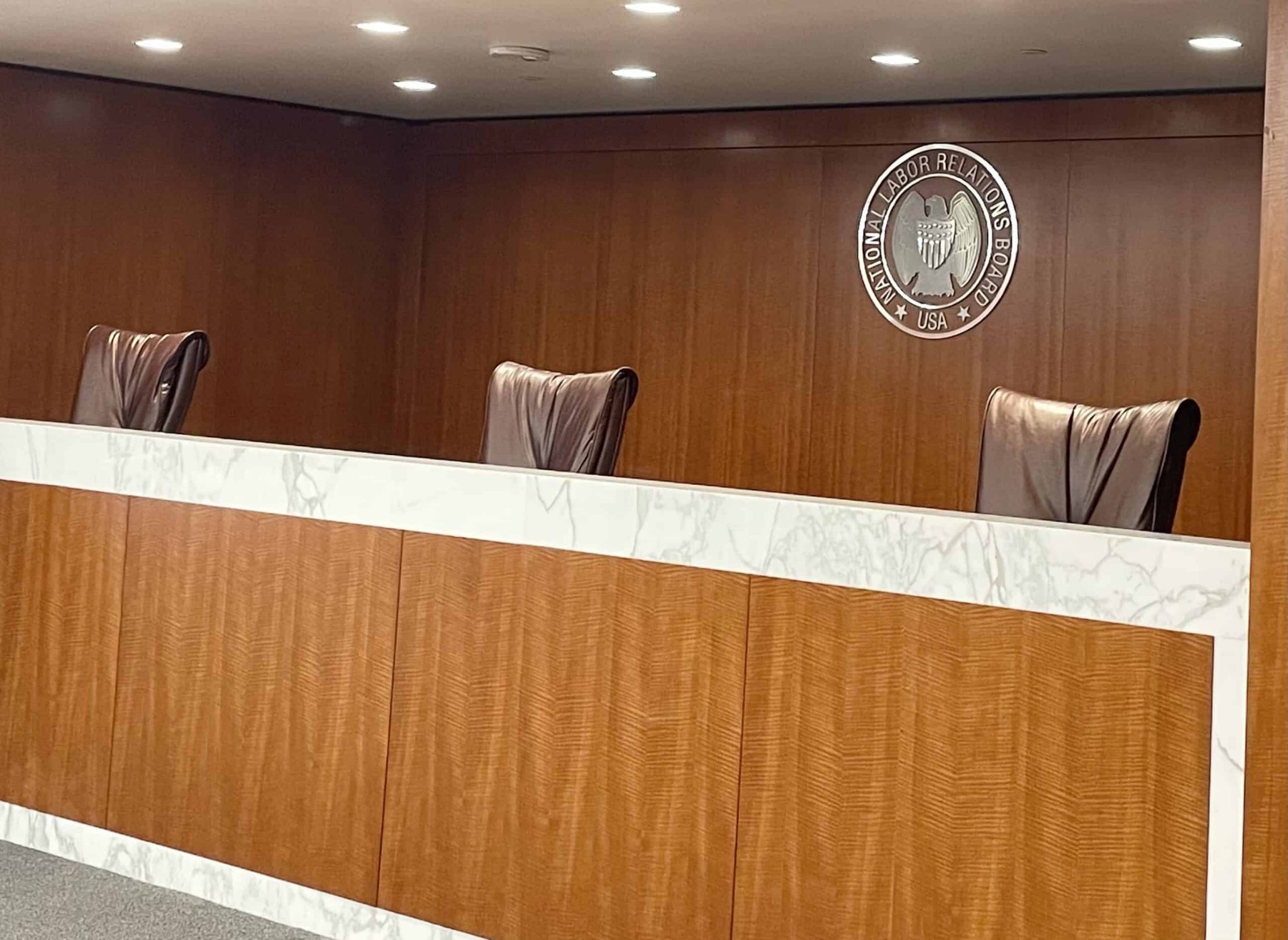
Henry Green is a student at Harvard Law School.
In today’s News and Commentary, observers predict a “lost year” for new precedent at the NLRB and cases are dismissed as a work stoppage among court-appointed lawyers in Massachusetts continues.
Observers predict a “lost year for substantive change” at the NLRB, Bloomberg Law reports, as Trump-appointed Board members will lack the three votes typically needed to overturn precedent – even if the Senate approves Trump’s nominees. Per the article, Trump nominees Scott Mayer (chief labor counsel at Boeing) and James Murphy (a career NLRB lawyer) do not have a plausible timeline to join the Board before current Chair Marvin Kaplan’s term expires. Assuming both are confirmed by the Senate, they would join David Prouty, a Biden appointee unlikely to vote with them to overturn precedent. Prouty’s term does not expire until August 2026. A divided three-member Board could test the durability of the norm requiring three votes to overturn precedent, the article suggests. Mark Gaston Pearce, the Board chair during the Obama administration, predicted that Murphy “would be loyal about that norm,” though he cautioned that “all bets are off” as the executive branch moves to exercise greater influence over the Board. Lauren McFerran, the chair under Biden, disputed the “lost year” framing, arguing that Trump’s firing of Gwynne Wilcox and assertion of direct control of the Board have made this a “year of dramatic change.”
The article notes that Trump could have filled two open Board seats at the start of his second term, creating a 3-2 Republican majority. Instead, the President left the positions open and fired Gwynne Wilcox, leaving the Board without a quorum. The Board has not issued a decision since late March, when Wilcox temporarily rejoined. As a result, Biden-era Board rulings remain in place. In contrast, Acting General Counsel William Cowen moved to rescind dozens of guidance memos within the first few weeks of the administration.
Back in May, I noted a story in the Boston Globe about a work stoppage among court-appointed attorneys in Massachusetts. Per the Globe, the work stoppage continues, with “no signs of abating.” The Globe covered a hearing yesterday where 102 defendants had their cases dismissed because the state had been unable to provide them a lawyer for at least 45 days. The charges spanned “from the petty to the violent,” the article says. The cases were dismissed without prejudice (meaning they can be refiled in the future) under an emergency state procedure known as the Lavallee protocol, which requires district courts to release people held in custody more than seven days without access to a lawyer and to dismiss cases that have gone more than 45 days without a lawyer being assigned. So far, the protocol applies to Suffolk and Middlesex counties; the state public counsel agency said it might seek to extend it to Essex county as well.
Bar advocates, the lawyers engaged in the work stoppage, are private, court-appointed attorneys, as distinguished from public defenders. According to WBUR, they typically earn about $65 per hour, “the lowest rate of any state in New England.” In Massachusetts, bar advocates represent about 80 percent of indigent defendants, with public defenders taking the rest. In most states, that ratio is flipped, per the article. Given that system, the state public counsel agency does not have enough attorneys to represent all of the currently unrepresented defendants.






Daily News & Commentary
Start your day with our roundup of the latest labor developments. See all
February 9
FTC argues DEI is anticompetitive collusion, Supreme Court may decide scope of exception to forced arbitration, NJ pauses ABC test rule.
February 8
The Second Circuit rejects a constitutional challenge to the NLRB, pharmacy and lab technicians join a California healthcare strike, and the EEOC defends a single better-paid worker standard in Equal Pay Act suits.
February 6
The California Supreme Court rules on an arbitration agreement, Trump administration announces new rule on civil service protections, and states modify affirmative action requirements
February 5
Minnesota schools and teachers sue to limit ICE presence near schools; labor leaders call on Newsom to protect workers from AI; UAW and Volkswagen reach a tentative agreement.
February 4
Lawsuit challenges Trump Gold Card; insurance coverage of fertility services; moratorium on layoffs for federal workers extended
February 3
In today’s news and commentary, Bloomberg reports on a drop in unionization, Starbucks challenges an NLRB ruling, and a federal judge blocks DHS termination of protections for Haitian migrants. Volatile economic conditions and a shifting political climate drove new union membership sharply lower in 2025, according to a Bloomberg Law report analyzing trends in labor […]